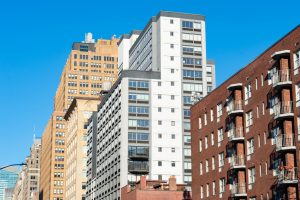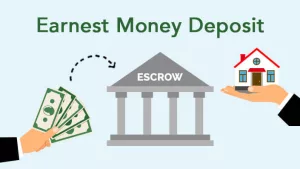Negotiable Terms on a New Construction in NYC (2024)
May 27, 2024 by Nicole Fishman Benoliel
Go Back To Previous Page
When purchasing a new-development condo in NYC, you can negotiate various terms, including the purchase price, sponsor closing costs, traditional buyer closing costs, additional credits, unit alterations, freebies such as a storage cage, a Purchase CEMA to lower your Mortgage Recording Tax, the mortgage contingency, the contract deposit, and the outside closing date. Those are the Negotiable Terms of a New Construction. Working with an agent who offers a commission rebate can be beneficial. This can help you save money when buying a new construction condo in NYC. In this article, we use the terms “developer” and “sponsor” interchangeably, as they have the same meaning.
Purchase Price is the #1 Negotiable Term on a New Construction
When purchasing a new construction condo in NYC, the price is the most obvious term to negotiate. However, developers prefer negotiating closing costs and other concessions before reducing the purchase price.

A row of primarily old and new residential buildings and skyscrapers in Chelsea of New York City
Developers aim to keep sale prices as high as possible to maintain the value of unsold units and strengthen their negotiating position with future buyers.
Generally, developers are more flexible on pricing and other terms during the early stages of a building’s sell-out. It’s common for developers to increase asking prices gradually as more units are sold.
Developers may also be particularly willing to sell the final few units in a new development, as the sponsor already focuses on newer projects and wants to move on.
Sponsor Closing Costs for New Construction
Sponsor closing costs for new-construction condos in NYC include NYC and NYS Transfer Taxes, sponsor attorney fees, the RMU (live-in super) apartment contribution for more significant buildings, and contributions to working capital and reserve funds.
In a traditional resale, the seller typically pays New York State (NYS) and New York City (NYC) transfer taxes, as well as the seller’s attorney fees.
However, this is the contrary for new-construction condos in NYC.
Understand that you can negotiate sponsor closing costs, particularly for more expensive units, buildings in the early stages of marketing, or developments struggling to meet sales targets. Developers are generally unwilling to cover working capital and reserve fund contributions on behalf of the home buyer. These funds go directly into the condo’s bank account, of which each owner has partial indirect ownership.
This differs from NYC & NYS Transfer Taxes and sponsor attorney fees paid to a third party.
Additionally, the working capital and reserve fund contribution typically amounts to just a few months of common charges, a relatively small number compared to other closing costs and concessions negotiated.
Traditional Buyer Closing Costs
Some developers may be willing to cover traditional buyer closing costs, such as the Mansion Tax, for highly motivated buyers. For instance, a purchaser might request the developer cover the Mansion Tax and all other sponsor closing costs when offering a new development.
Example: Closing Costs: The Sponsor will cover NYC and NYS Transfer Taxes, Mansion Tax, RM Unit Contribution, Working Capital Contribution, and Sponsor’s Legal Fees. Inclusions: Sponsor to include a second parking space license and two (2) 28 SqFt storage unit cages at no additional charge
Working with an agent who offers a commission rebate can further reduce your closing costs when buying a new construction condo in NYC.
Additional Credits
Negotiations for a new construction condo in NYC may include securing credits towards taxes, standard charges, or an interest rate buydown. Mainly motivated developers may offer an upfront discount as a credit.
The specific promotional language may change over time as a sales tactic. For instance, a new development might offer buyers a credit equivalent to 6 months of taxes and standard charges, amounting to an upfront discount of $24,000. A year later, the developer might rebrand this promotion as an”‘ate buydown”‘ even though the discount amount remains unchanged at $24,000.
Here’san example;
Closing Costs: Sponsor to cover NYC & NYS Transfer Taxes, Mansion Tax & Sponsor Attorney + ACRIS Fees ($4,500) Closing Credit: Sponsor to credit purchaser in the amount of 36 months of standard charges ($47,150)
Here’s an example of an upfront discount offered by a new development, conveyed as a rate buydown: NEW INCENTIVE: The sponsor will reduce your mortgage interest rate by 2% annually for the first three years of your mortgage.
Unit Alterations
When purchasing a new development condo in NYC, it may be possible to negotiate specific changes. The extent to which a developer may consider alterations is typically greater for more expensive units or when the sponsor is highly motivated.
Furthermore, a developer will approve alterations if the construction team is still on-site. However, suppose the sponsor completed the building years ago, and the developer still has unsold units. In that case, the likelihood of them agreeing to alterations is lower, as the construction team has likely left the building.
Freebies
A NYC condo developer may be willing to negotiate freebies as part of a deal, such as a complimentary (or highly discounted) storage cage, bike space, parking spot, rooftop cabana, or gym membership. Storage cages rarely sell for the list price, so they’re commonly included in the final stages of negotiation to entice a buyer to proceed.
Purchase CEMA
Suppose you are financing the purchase of a new construction condominium in New York City. In that case, you may have the opportunity to lower your Mortgage Recording Tax by negotiating a Purchase CEMA with the developer as part of your offer terms. To qualify for this, the developer must have a sufficiently large mortgage.
A Purchase CEMA (Purchase Consolidation Extension Modification Agreement) involves assigning a portion of the sponsor’s existing mortgage to the buyer. This reduces the amount of new home loan money that needs to be recorded, resulting in lower closing costs for the Mortgage Recording Tax (1.80% to 1.925%) and the New York State Transfer Tax (0.4% to 0.65%). Note that a Purchase CEMA does not impact your mortgage interest rate. Your lender will still determine your rate.
In summary, consider negotiating for some or all of the Mortgage Recording Tax savings associated with a Purchase CEMA when the circumstances allow.
Mortgage Contingency
In New York City, most new developments do not officially allow mortgage contingencies, but you can negotiate this feature. If a developer agrees to a mortgage contingency, they may require you to get pre-approval from one of the building’s referred lenders before you sign the contract.
The developer might also insist that you apply with a building-preferred lender as a condition for having a mortgage contingency. Sometimes, the developer may initially allow you to use it with your preferred lender.
However, if the lender declines your application, the sponsor may require you to apply to a building-preferred lender before being allowed to activate the mortgage contingency and cancel the real estate transaction.
Contract Deposit
The standard contract deposit for purchasing a new construction home in New York City is typically 10% of the purchase price. However, as the project nears completion, the sponsor requests an increase in this amount to 20%.
You can negotiate the total amount of the contract deposit and payment schedule for a new development condo in NYC.
Outside Closing Date as part of the Negotiable Terms on a New Construction
Your real estate attorney may be able to negotiate an outside closing date in your new construction purchase contract. The outside closing date refers to the deadline by which the sponsor must be able to complete the closing process.
If the sponsor cannot close by the outside closing date, you have the right to back out and recover your contract deposit.
Remember that NYC new development condo purchase contracts typically do not allow buyers to sue the developer if the sale doesn’t close. Usually, your only recourse is to recover your contract deposit.



